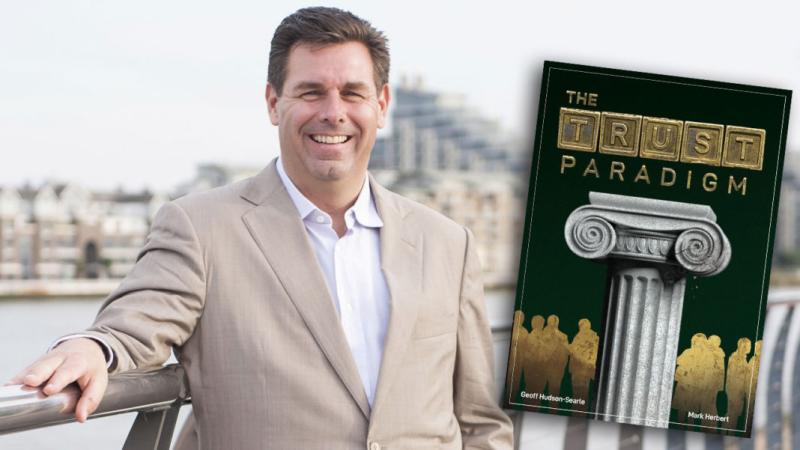Music is emotional communication...explained

Some time ago I wrote a blog called “What is Happiness” – the blog talked about our human happiness, the opening of our hearts to truly experience passion in our lives and our ability to elevate our emotions and increase productivity across our relationships.
A very good friend of mine is in the music industry – I love our meetings, he is so inspired by music, old music, new music, we talk hours about music produced, artists, it is always a totally inspired encounter when we meet.
As a young man, I always enjoyed listening to music, I also had the great fortune to travel globally and really enjoyed to hear music from the country I would be visiting, I felt a strong alliance to culture and understanding with the country I was visiting. I may not understand too many words but was nevertheless enthralled. Was it because the sounds of human speech are thrilling? Not really.
Pharell Williams created “Happy”. The song has been highly successful, peaking at No. 1 in the United States, United Kingdom, Canada, Ireland, New Zealand, and 19 other countries. It was the best-selling song of 2014 in the United States with 6.45 million copies sold for the year, as well as in the United Kingdom with 1.5 million copies sold for the year. It reached No. 1 in the UK on a record-setting three separate occasions and became the most downloaded song of all time in the UK in September 2014. It was nominated for an Academy Award for Best Original Song. A live rendition of the song won the Grammy Award for Best Pop Solo Performance at the 57th Annual Grammy Awards.
It is clear that with Pharell Williams he had much to celebrate communicating ‘Happy’ and sharing emotional love across the globe, but does music generally continue to emanate from our alarm clocks in the morning, and fill our cars, and give us chills, and make us potentially cry?
According to a paper by Nidhya Logeswaran and Joydeep Bhattacharya from the University of London, music even affects how we see visual images. In the experiment, 30 subjects were presented with a series of happy or sad musical excerpts. After listening to the snippets, the subjects were shown a photograph of a face. Some people were shown a happy face – the person was smiling – while others were exposed to a sad or neutral facial expression. The participants were then asked to rate the emotional content of the face on a 7-point scale, where 1 mean extremely sad and 7 extremely happy.
The researchers found that music powerfully influenced the emotional ratings of the faces. Happy music made happy faces seem even happier while sad music exaggerated the melancholy of a frown. A similar effect was also observed with neutral faces. The simple moral is that the emotions of music are “cross-modal,” and can easily spread from sensory system to another. Now I never sit down to my wife’s meals without first putting on a jolly Sousa march.
The question, of course, is what those elements are. One candidate is our expressive speech – perhaps music is just an abstract form of language. However, most of the emotion of language is in the meaning, which is why foreign languages that we do not understand rarely make us swoon with pleasure or get angry. That is also why emotional speech from an unfamiliar language is not featured on the radio!
Music is a proven common phenomenon that crosses all borders of nationality, race, and culture. A tool for arousing emotions and feelings, music is far more powerful than language. An increased interest in how the brain processes musical emotion can be attributed to the way in which it is described as a “language of emotion” across cultures. Be it within films, live orchestras, concerts or a simple home stereo, music can be so evocative and overwhelming that it can only be described as standing halfway between thought and phenomenon.
But why exactly does this experience of music distinctly transcend other sensory experiences? How is it able to evoke emotion in a way that is incomparable to any other sense?
Music can be thought of as a type of perceptual illusion, much the same way in which a university is perceived. The brain imposes structure and order on a sequence of sounds that, in effect, creates an entirely new system of meaning. The appreciation of music is tied to the ability to process its underlying structure — the ability to predict what will occur next in the song. But this structure has to involve some level of the unexpected, or it becomes emotionally devoid.
Skilled composers manipulate the emotion within a song by knowing what their audience’s expectations are, and controlling when those expectations will be met. This successful manipulation is what elicits the chills that are part of any moving song.
Music, though it appears to be similar to features of language, is more rooted in the primitive brain structures that are involved in motivation, reward and emotion. Whether it is the first familiar notes of The Beatles’ “Yellow Submarine,” or the beats preceding AC/DC’s “Back in Black,” the brain synchronises neural oscillators with the pulse of the music, and starts to predict when the next strong beat will occur. The response to ‘groove’ is mainly unconscious; it is processed first through the cerebellum and amygdala rather than the frontal lobes.
More than any other stimulus, music has the ability to conjure up images and feelings that need not necessarily be directly reflected in memory. The overall phenomenon still retains a certain level of mystery; the reasons behind the ‘thrill’ of listening to music is strongly tied in with various theories based on synesthesia.
When we are born, our brain has not yet differentiated itself into different components for different senses – this differentiation occurs much later in life. So as babies, it is theorised that we view the world as a large, pulsing combination of colors and sounds and feelings, all melded into one experience – ultimate synesthesia. As our brains develop, certain areas become specialized in vision, speech, hearing, and so forth.

Professor Daniel Levitin, a neuroscientist and composer, unpacks the mystery of the emotion in music by explaining how the brain’s emotional, language and memory centers are connected during the processing of music – providing what is essentially a synesthetic experience. The extent of this connection is seemingly variable among individuals, which is how certain musicians have the ability to create pieces of music which are brimming with emotional quality, and others simply cannot. Be it classics from the Beatles, Bob Marley or fiery riffs from White Snake and Led Zeppelin, the preference for a certain type of music has an effect on its very experience. It could be this heightened level of experience in certain people and musicians that allows them to imagine and create music that others simply cannot, painting their very own sonic image.
Music is a fundamental part of our evolution; we probably sang before we spoke in syntactically guided sentences. Song is represented across animal worlds; birds and whales produce sounds, though not always melodic to our ears, but still rich in semantically communicative functions. Song is not surprisingly tied to a vast array of semiotics that pervade nature: calling attention to oneself, expanding oneself, selling oneself, deceiving others, reaching out to others and calling on others. The creative capability so inherent in music is a unique human trait.
Music is strongly linked to motivation and to human social contact. Only a portion of people may play music, but all can, and do, at least sing or hum a tune. Music is like breathing, all pervasive. Music is a core human experience and a generative process that reflects cognitive capabilities. It is intertwined with many basic human needs and is the result of thousands of years of neurobiological development. Music, as it has evolved in humankind, allows for unique expressions of social ties and the strengthening of relational connectedness.
Music is linked to learning, and humans have a strong pedagogical predilection. Learning not only takes place in the development of direct musical skills, but in the connections between music and emotional experiences. Darwin understood both music and consideration of emotion to be human core capabilities. Emotional systems are forms of adaptation allowing us to, for instance, note danger through the immediate detection of facial expressions.
Whether music makes you happy or sad, one of the fascinating things that has become clear is that people from very different cultures and backgrounds will often agree on whether a piece of music sounds happy or sad – making it a truly universal form of communication.
As Hans Christian Andersen once said:
“Where words fail, music speaks”
Articles from Geoff Hudson-Searle
View blogCan a company be successful and competitive in the market and at the same time trusted? · Eric Greit ...

The office Christmas party is fraught with perils usually due to the over-consumption of alcohol. Th ...

A recent publication by Business Mondays, published a recent interview on Geoff Hudson-Searle, that ...
Related professionals
You may be interested in these jobs
-
Global Oil Gas Senior Rotating Equipment MaintenanceEngineer
Found in: Talent UK C2 - 2 days ago
MatchaTalent Aberdeen, United KingdomThis role required candidate topermanently relocate at Dhahran SaudiArabia. · About theCompany · This company engagesin the exploration production transportation and sale of crude oiland natural gas. It operates through the following segments:Upstream Downstream and Corporate. Th ...
-
Tile Setter
Found in: Jooble UK O C2 - 5 days ago
Alexander Associates Eynsford, Kent, United KingdomWE ARE LOOKING FOR AN EXPERIENCED CERAMIC TILER TO WORK ON A PROJECT IN THE EYNSFORD · DUTIES WILL INVOLVE INSTALLING WALL AND FLOOR TILES IN KITCHENS/BATHROOMS ON A LARGE HIGH RESIDENTIAL REFURBISHMENT/EXTENSION · YOU WILL REQUIRE: · * OWN TOOLS · * FULL PPE · * PREVIOUS EXPERIE ...
-

Project Finance
Found in: Jooble UK O C2 - 1 day ago
Michael Page (UK) London, United KingdomWe have been made aware of a global phishing campaign where employees from companies are being impersonated. We are confident that no PageGroup system has been breached. Find out how to protect yourself · AD/VP level role in a banking project finance team · Supporting renewabl ...

Comments
Geoff Hudson-Searle
6 years ago #11
Thanks Trisha for your comments, I am not sure if you ever knew Pharell rejected HAPPY the first time he was asked to sing the song, I am sure he has no regrets today. Love your comments about Alfred Hitchcock, I did write a blog about Woody Allen and the Beatles, I must see if I can dig them out. Bob Marley did unite political agendas but Bob was a deep philosopher about people and love too, bringing people together with values and reasoning. My favorite quote from Bob is “You never know how strong you are, until being strong is your only choice.” If you have ever been at this point - you will know exactly what I mean by this quote.
Irene 🐝 Rodriesco
6 years ago #10
en los 3 comentarios 10,11,12 un rotundo "por supuesto"
Geoff Hudson-Searle
6 years ago #9
La música es el amor, el amor es la música, la música es vida, :-)
Geoff Hudson-Searle
6 years ago #8
The world's most famous and popular language is music.
Geoff Hudson-Searle
6 years ago #7
Music expresses that which cannot be said and on which it is impossible to be silent.
Lance 🐝 Scoular
6 years ago #6
Irene 🐝 Rodriesco
6 years ago #5
Con esta, creo que saltaria el Copyright #4¿No?. Si se graba se refleja en Google.
Irene 🐝 Rodriesco
6 years ago #4
#4 ¿la idea con la misma canción?
Irene 🐝 Rodriesco
6 years ago #3
Geoff Hudson-Searle
6 years ago #2
Dominique 🐝 Petersen
6 years ago #1